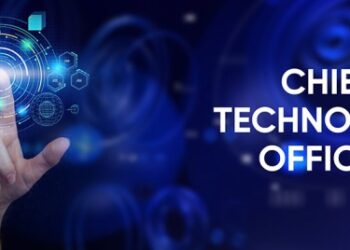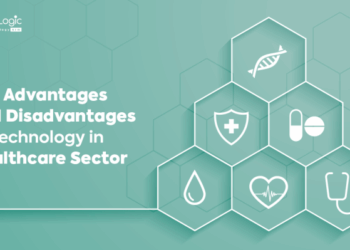Diving into The Role of Blockchain in Data-Driven Economies, this introduction sets the stage for a captivating exploration of how blockchain technology is revolutionizing the way data is managed and utilized in various economic sectors.

The subsequent paragraph delves deeper into the intricacies of blockchain technology and its significance in driving data-driven economies forward.
The Basics of Blockchain Technology
Blockchain technology is a decentralized digital ledger system that securely records transactions across a network of computers. In data-driven economies, blockchain plays a crucial role in ensuring the integrity and transparency of data exchanges.
Key Features of Blockchain Technology
- Decentralization: Blockchain operates on a network of computers, eliminating the need for a central authority, which enhances security and reduces the risk of data manipulation.
- Transparency: All transactions recorded on a blockchain are visible to all network participants, promoting trust and accountability.
- Immutability: Once data is recorded on a blockchain, it cannot be altered or deleted, ensuring data integrity and security.
- Security: Blockchain uses cryptographic techniques to secure data, making it resistant to hacking and unauthorized access.
How Blockchain Ensures Security and Transparency
Blockchain technology utilizes advanced cryptographic algorithms to secure data transactions. Each block in the chain contains a unique hash generated from the previous block's data, creating a secure link between blocks. This makes it virtually impossible to alter historical data without detection.
Additionally, the decentralized nature of blockchain ensures that no single entity has control over the entire network, enhancing security and transparency in data exchanges.
Applications of Blockchain in Data-Driven Economies
Blockchain technology is revolutionizing the way data is managed and utilized across various industries. Its decentralized and secure nature provides a wide range of applications in data-driven economies, enhancing data integrity, authenticity, and accessibility.
Supply Chain Management
Blockchain technology is widely used in supply chain management to track the movement of goods, verify authenticity, and ensure transparency. By recording every transaction on a secure and immutable ledger, blockchain enhances data integrity and eliminates the risk of fraud or manipulation.
Financial Services
In the financial sector, blockchain is utilized for secure and speedy transactions, reducing the need for intermediaries and ensuring transparency. Smart contracts enable automated processes, enhancing efficiency and reliability in financial activities.
Healthcare
Blockchain technology plays a crucial role in healthcare by securely storing patient records, ensuring data privacy, and enabling seamless sharing of information among healthcare providers. This enhances data accessibility while maintaining the integrity and authenticity of medical data.
Real Estate
The real estate industry benefits from blockchain technology by providing a transparent and secure platform for property transactions. Smart contracts streamline the process, reducing paperwork, and ensuring the authenticity of property ownership records.
Comparing Traditional Data Management Systems with Blockchain
Traditional data management systems rely on centralized servers, making them vulnerable to cyber-attacks and data breaches. In contrast, blockchain solutions offer decentralized storage, encryption, and consensus mechanisms that enhance data security, integrity, and accessibility. The transparency and immutability of blockchain technology provide a more reliable and efficient way to manage data in various economic activities.
Challenges and Limitations of Implementing Blockchain
Implementing blockchain technology in data-driven economies comes with a set of challenges and limitations that organizations need to address
. These obstacles can range from technical issues to regulatory concerns, impacting the seamless integration of blockchain into existing operations.
Scalability Issues in Large-Scale Data Ecosystems
One of the major challenges faced by organizations when implementing blockchain in data-driven economies is scalability. As the volume of transactions and data processed on the blockchain network increases, the technology may struggle to handle the load efficiently. This can lead to slower transaction speeds, higher costs, and potential bottlenecks in the system.
To address scalability issues, organizations need to explore solutions such as implementing off-chain scaling techniques, sharding, or adopting alternative consensus mechanisms to improve the performance of the blockchain network in large-scale data ecosystems.
Regulatory Hurdles and Privacy Concerns
Another significant challenge in implementing blockchain technology in data-driven economies is navigating regulatory frameworks and addressing privacy concerns. Blockchain operates on a decentralized and transparent ledger, which can raise issues related to data privacy, compliance with regulations such as GDPR, and the need for identity verification.
Organizations must ensure that they comply with relevant laws and regulations when implementing blockchain solutions to protect user data and maintain trust in the system. Additionally, addressing privacy concerns through encryption, data minimization, and secure access controls is crucial to safeguard sensitive information on the blockchain network.
Future Trends and Innovations in Blockchain Technology
Blockchain technology continues to evolve rapidly, leading to various trends and innovations that are reshaping data-driven economies. As we look ahead, it is crucial to explore these emerging developments and predict how they will impact the future of economic systems and data management.
Smart Contracts and Decentralized Finance (DeFi)
Smart contracts are self-executing contracts with the terms of the agreement directly written into lines of code. They automate and enforce the execution of agreements, eliminating the need for intermediaries and increasing efficiency. In data-driven economies, smart contracts are revolutionizing processes such as supply chain management, real estate transactions, and intellectual property rights protection.
On the other hand, decentralized finance (DeFi) leverages blockchain technology to enable financial services without traditional intermediaries. DeFi applications offer opportunities for borrowing, lending, and trading assets in a trustless and permissionless environment, creating a more inclusive financial ecosystem.
Interoperability and Scalability Solutions
One of the key challenges facing blockchain technology is interoperability between different networks and scalability to handle a growing number of transactions. Innovations in interoperability solutions, such as cross-chain communication protocols and interoperability layers, are enabling seamless interaction between various blockchains.
Additionally, advancements in scalability solutions, like sharding and layer 2 protocols, are enhancing the throughput and efficiency of blockchain networks. These developments are essential for supporting the widespread adoption of blockchain in data-driven economies.
Privacy and Security Enhancements
Privacy and security are critical aspects of blockchain technology, especially in data-driven economies where sensitive information is exchanged. Innovations in privacy-enhancing technologies, such as zero-knowledge proofs and homomorphic encryption, are enhancing the confidentiality of blockchain transactions. Moreover, advancements in security protocols and consensus mechanisms are strengthening the overall security of blockchain networks.
These enhancements are crucial for building trust and ensuring the integrity of data in economic activities conducted on blockchain platforms.
Last Recap
In conclusion, The Role of Blockchain in Data-Driven Economies underscores the pivotal role that blockchain plays in ensuring data security, transparency, and efficiency in today's dynamic economic landscape.
FAQ Resource
What are the primary features of blockchain technology?
Blockchain technology is characterized by its decentralized nature, immutability, transparency, and security features.
How does blockchain enhance data integrity?
Blockchain ensures data integrity by creating an unchangeable record of transactions that is visible to all participants in the network.
What challenges do organizations face when integrating blockchain into data-driven operations?
Organizations often encounter challenges related to scalability, regulatory compliance, and privacy concerns when implementing blockchain technology.
What are some emerging trends in blockchain development?
Emerging trends include the rise of smart contracts, decentralized finance (DeFi), and increased interoperability between different blockchain networks.
 The subsequent paragraph delves deeper into the intricacies of blockchain technology and its significance in driving data-driven economies forward.
The subsequent paragraph delves deeper into the intricacies of blockchain technology and its significance in driving data-driven economies forward.










